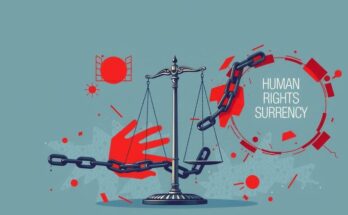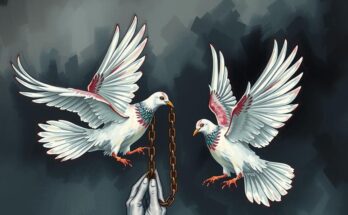Discrimination has long been woven into the fabric of societies, manifesting as racism, xenophobia, and prejudices based on gender and sexual orientation. Such injustices against minorities persist and must be confronted. The economic repercussions of workplace discrimination underscore the necessity of unions globally. In Jamaica, however, research into this critical economic loss remains scant, highlighting the urgent need for awareness and action on these issues.
Abuse of authority manifests when those in power misuse their positions to intimidate or coerce others, creating toxic work environments. This can occur in isolated incidents or as a series of ongoing confrontations that threaten employee wellbeing. It’s crucial for workers to reclaim their agency and boldly address such pervasive discrimination in the workplace.
Ethics, rooted in philosophy, guides our notions of right and wrong, while morality stems from personal or cultural standards. Employment discrimination involves treating individuals unfavourably for reasons unrelated to their abilities or job requirements. The United Nations Global Compact Principle 6 identifies indirect discrimination—where seemingly neutral practices lead to unfair exclusion—as a hidden yet destructive force that requires vigilant challenge.
Human rights are the fundamental rights given to every individual, irrespective of diversity in race, sex, or belief. Workers are entitled to essential rights, including fair treatment at work. The UN has proposed measures for employers to incorporate human rights within their operational frameworks, especially in regions where local laws may be inadequate and enforcement lacking. This approach mandates a robust legislative structure to safeguard employee rights.
The journey towards labour rights in the Caribbean gained momentum post-slavery, evolving significantly after the riots between 1935 and 1939, which were a response to persistent inequities. Influenced by Garveyism, workers began forming associations advocating for improved working conditions and self-governance. Unions emerged, intertwining with political movements, reflecting the workers’ fight for dignity and equitable treatment.
Societal narratives around human rights require urgent reassessment. A pervasive culture trivialising discrimination stifles meaningful advocacy. Even in today’s post-trade union era, workplace conflicts and rights violations flourish, often ignored due to the slow progress of justice. Many employees choose silence over confrontation, a troubling stance that contradicts the fighting spirit of their forebears, compounding injustices in labour relations.
Victims of workplace abuse often find themselves ensnared in a web of intimidation and manipulation, crafted to silence dissent. To effect real change, we must rethink our approach to discrimination and injustices. Strengthening labour rights is essential for altering workplace cultures and enhancing relations across public and private sectors, creating environments of respect and fairness.
Discrimination remains prevalent in workplaces, manifesting in various forms and necessitating the role of unions. Employees are urged to reclaim their voices against abuse of authority, which is closely tied to ethics and morality. The UN emphasizes the importance of protecting human rights at work, especially in regions lacking adequate legal frameworks. The Caribbean’s labour rights journey has historical roots in activism shaped by past injustices, and current narratives must shift to effectively combat workplace violations.
To combat workplace discrimination, it’s vital to not only be aware of abuses of authority but also to vocalise opposition and demand change. By reinforcing labour rights, we pave the way for improved attitudes in workplaces and foster better relationships in society as a whole. Encouraging resilience and solidarity among employees will ultimately lead to a more equitable and just work environment. In the spirit of activism, we must galvanise our collective voices to dismantle the roots of discrimination and empower each other to stand firm against injustices.
Original Source: afro.com



